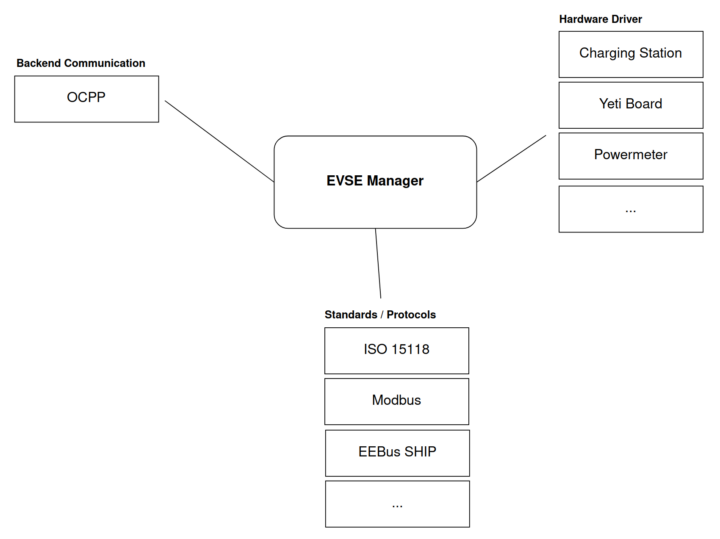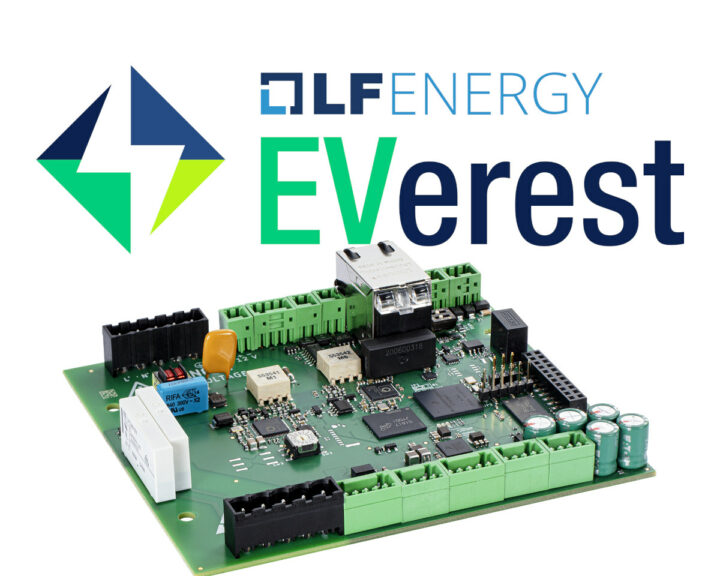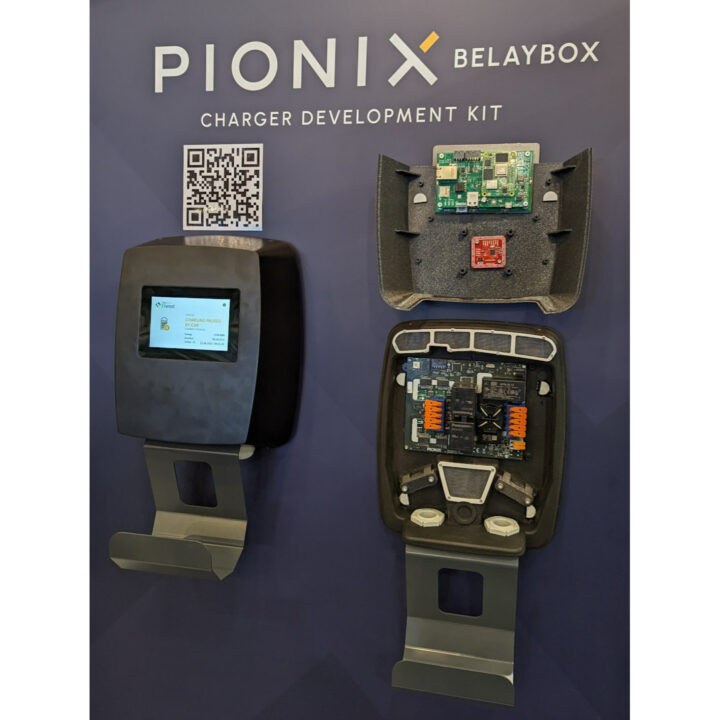EVerest is a software project initiated by PIONIX GmbH, but now part of the Linux Foundation’s LFEnergy initiative, whose primary goal is to develop and maintain an open-source software stack for EV charging infrastructure. EVerest supports multiple standards and it will run on any device from AC home chargers to public DC charging stations.
I noticed the EVerest project in an upcoming talk at the Embedded Open Source Summit 2023 entitled ” EVerest: Electric Vehicle Chargers With Open Hardware and Software” and whose abstract reads in part:
You will learn how to build your own electric vehicle charger using open hardware designs in combination with the EVerest open-source software stack for EV charging infrastructure. Following a quick introduction to EV charging technology, with explanations of the standards, protocols, and complexities involved, the talk will go into a deep dive into how you can build your own AC charging station. Reference hardware designs for a power board, as well as a high-level control board, will be explained in detail.
There’s already a fair amount of information about the project online, so I decided to have a closer look.
The EVerest stack is comprised of several software packages designed to run on most Linux distributions with modules managed by the EVerest Dependency Manager (EDM). Communication between the framework and modules is done via a local MQTT server, and each module’s features are defined in a manifest file and a setup-specific system configuration both written in JSON in order to enable support for a various range of hardware modules.
EVerest can handle communication around energy between different players:
- Car (EN IEC 61851, ISO 15118)
- Local energy generation & batteries (Modbus, Sunspec)
- Adjacent chargers (WIP)
- Grid (including specific grid constraints)
- Cloud backend/payment (OCPP 1.6)
- User (interface)

You’ll find the source code and installation instructions on GitHub, and more detailed documentation on GitHub.io.
At least three hardware platforms/reference designs are available for EVerest software. The first one is Chargebyte’s Charge Control C charging controller, as shown in the first photo in this post, which is IEC 61851 and ISO 15118 compliant, and suitable for many types of AC charging stations. EVerest developers are also working with a Phytec using a Texas Instruments Sitara AM62x Cortex-A53/M3 system-on-module, but I could not find any details.
The best solution to get started with EVerest is probably the PIONIX BelayBox charging station since it looks to be a complete reference design with a 5-inch display, the “Yak” main board powered by a Raspberry Pi CM4 module, and equipped with a QCA7005 PLC GreenPHY modem, an NFC/RFID reader, USB, RS232/RS485, interfaces, and more, as well as the “Yeti” board based on an STM32 microcontroller to handle safety-critical code, plus and power electronics components.
The Yeti and YaK boards were designed in KiCad, and the hardware design files can be found on GitHub under “CERN Open Hardware Licence Version 2 – Permissive”. The board can also be purchased from PIONIX, but no pricing is shown. You’ll find additional information on the product page.
If you want to learn more, you can watch the 38 minutes presentation below (the rest of the video is just Q&As), dated November 18, 2022. A more recent talk was also given at FOSDEM 2023.
The EVerest project is also hosted on LFEnergy’s website where you may be able to find some extra resources and other open-source sustainable energy projects.

Jean-Luc started CNX Software in 2010 as a part-time endeavor, before quitting his job as a software engineering manager, and starting to write daily news, and reviews full time later in 2011.
Support CNX Software! Donate via cryptocurrencies, become a Patron on Patreon, or purchase goods on Amazon or Aliexpress







